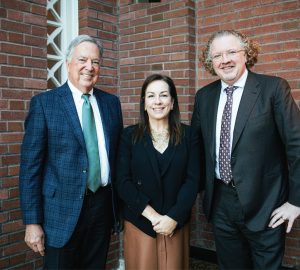They used to call it juvenile diabetes. But Type 1 diabetes, or T1D, is no longer kids’ stuff. Though its prevalence in children has increased more than 20 percent in less than a decade, recent statistics show 85 percent of those who have the chronic autoimmune disease are adults. It now affects some 3 million Americans, with 30,000 new cases diagnosed each year. T1D destroys cells in the pancreas that produce insulin, which regulates blood sugar levels and metabolism. Complications include kidney failure, blindness, heart disease, stroke, amputation due to nerve damage—and death. The disease requires lifelong dependency on injected or pumped insulin. It strikes suddenly. There is no cure.
JDRF, the world’s largest charitable supporter of T1D research, is dedicated to developing better treatments for the disease, preventing it in the future and, ultimately, finding a cure. “We fund meaningful research that makes a life-changing difference for those facing the daily challenges of T1D,” says Marie Davis, executive director of JDRF Greater Missouri and Southern Illinois Chapter. The organization also provides support and education to individuals with diabetes and their families, and fights for treatment reimbursement for patients. The local chapter serves more than 3,000 families and raises over $3 million a year for research and related education.
Formerly known as Juvenile Diabetes Research Foundation, JDRF currently sponsors $530 million in projects in 17 countries and funds more than 50 human clinical trials. Scheduled for human trials this year is an implant of encapsulated, insulin-producing cells that regulate blood sugar. “This frees diabetics from the burden of daily insulin injections,” Davis explains. “It’s the closest we’ve ever come to a cure for T1D.” And an artificial pancreas system, which delivers and monitors insulin and eliminates the need for frequent blood glucose testing, is now in final human trials. “The more tightly glucose is controlled, the better people with diabetes can manage or lessen the many complications caused by diabetes,” she notes.
But research, clinical trials and development are costly. A major JDRF fundraiser, the annual Dream Gala, takes place May 3 at Hyatt Regency St. Louis at The Arch. Honorees at this year’s event, themed The Road to a Cure, include Cardinals football Hall of Famer Jackie Smith, who will receive the Star of Hope Award for fundraising efforts on behalf of the community. “Jackie understands the need for a cure in a very personal way,” Davis says. “His son, Greg, and one of his granddaughters, Rosie, have T1D.”
Dream Gala is a crucial step in the journey toward a cure, Davis notes. “JDRF’s mission is to progressively lessen the impact of T1D until we achieve a world without it. We want to keep people healthy and safe today until we reach our ultimate goal: a cure and universal prevention. Every day brings us closer. With continued support, we’ll turn Type
Pictured:Star of Hope Award-Winner Jackie Smith and granddaughter Stella Smith
[JDRF’s Dream Gala 2014, themed The Road to a Cure, takes place May 3 at Hyatt Regency St. Louis at The Arch. For more information, call 314.729.1846 or visit jdrf.stl.org.]








